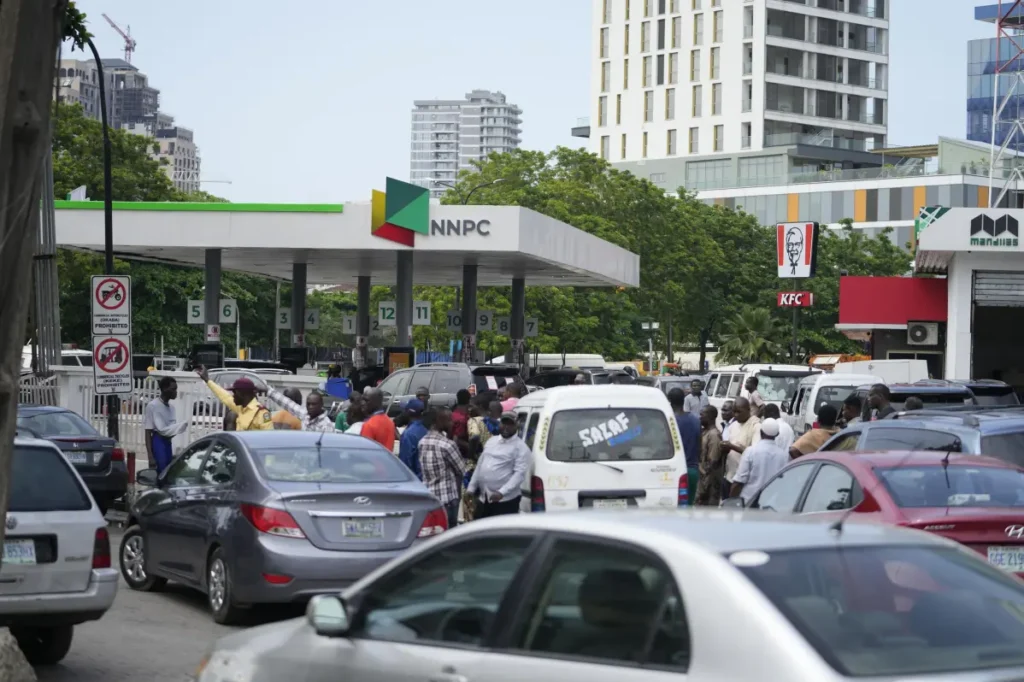Dear Beamers,
Greetings! As part of our commitment to delivering comprehensive insights and updates, we’re thrilled to present this week’s edition of our newsletter, packed with the latest developments across key sectors. We have three great, well-dissected, and dished-out topics for you. This article, in particular, addresses a crucial topic of national interest.
A lot has been said since the removal of fuel subsidy and its consequential impact on the rising cost of living. Is it directly involved with the prevailing high cost of goods or not? Well, you can only know if you sit tight to have a good read of this piece.
What is fuel subsidy really? The concept of fuel subsidy has sparked widespread discussions in Nigeria. In essence, a subsidy denotes indirect financial assistance from a government, organization, institution, or individual to specific entities. Introduced in the 1970s, fuel subsidies in Nigeria aimed to mitigate the effects of surging global oil prices on the populace.
Before now, the Nigerian government defended fuel subsidies, citing their role in ensuring affordable petroleum products for citizens, particularly those with lower incomes. Subsidies were viewed as instrumental in supporting economic growth, preserving social stability, and fostering development by curbing transportation and goods costs.
Over time, fuel subsidies evolved into a significant fiscal burden for the Nigerian government, worsened by rising domestic fuel consumption, inefficient refineries, product imports, smuggling, and corruption. Attempts to remove subsidies by past administrations faced public resistance, driven by apprehensions about heightened living expenses.
In the 2023 presidential campaign, four leading candidates pledged the complete removal of subsidies upon assuming office, creating anticipation among Nigerians. The lingering question, however, remained: when will the removal of fuel subsidy take place? Echoing as a silent shockwave in the thoughts and words of the nation. If only we could take a ride into the future, the answer could have been clearer.
“The fuel subsidy is gone,” declared President Bola Ahmed Tinubu, GCFR, during his inaugural Speech on May 29th, 2023. The president’s announcement marked the termination of the fuel subsidy in Nigeria, triggering immediate ripple effects, including a substantial 150% surge in the petrol pump price. This abrupt increase had a cascading impact, elevating the overall cost of living across the country.
The removal of the fuel subsidy stemmed from various reasons, including the essential discomfort intended to alleviate strain on government finances. This measure aimed to create fiscal space by redirecting resources previously allocated to fuel subsidies towards critical sectors like healthcare, education, and infrastructure.

In addressing the Fuel Subsidy Removal, Adeyanju Adebisi, an Economist and Business Analyst gave his candid opinion:
“Removing fuel subsidy in Nigeria was a tough call, especially given how it dances to the beat of global oil prices. When those prices spike, our government feels the pinch of subsidizing fuel imports, and when they drop, it struggles to meet subsidy demands due to lower revenues. Let’s be real – our fuel subsidy system was like a playground for corruption. Powerful folks found ways to game the system, divert funds, and pull off shady deals. It messed up resource allocation and fueled corruption in the petroleum sector.”
He added “Now, the government taking a clear stand on ditching the subsidy? It’s like a bold statement that they mean business. It’s not just about fuel; it’s about showing they have a plan and the guts to stick to it. This move brings hope for a more stable political scene and a chance for the government to actually get things done.”
The government’s initiative to tackle enduring issues tied to fuel subsidies, such as financial strain, corruption, and market inefficiencies, is evident. However, the elimination of these subsidies has prompted significant repercussions across the economy, society, and citizens’ daily lives. The sudden rise in fuel prices, a direct outcome of subsidy removal, has set off a spilling effect, affecting multiple sectors.
Within the transportation sector, the subsidy removal has resulted in increased transportation costs for individuals and businesses, consequently contributing to inflation. The substantial increase in prices of goods and services has had a profound impact on consumers’ purchasing power.
Mr Johnson, a motorist who plies the Lagos-Ibadan express road for a living shared with us the adverse effects that fuel subsidy removal has caused to his business and his role as the breadwinner of his family.
“We all understand that the government has good plans for removing the subsidy, but why remove everything at once? As of last year (2023), we (drivers) charged ₦1500 from Lagos to Ibadan; today it’s ₦3000. The turnout of passengers is low, yet we still need to pay toll gates charges, park fees, ‘agbero’ taxes every day. I still need to provide for my wife and children. To make matters worse, everything is just so expensive…”
Fuel subsidy removal has significantly impacted businesses, particularly small and medium enterprises (SMEs), as increased fuel costs directly raise operational expenses. Low-income individuals and families, who allocate a substantial portion of their income to fuel and basic needs, bear the brunt of rising prices. This exacerbates income inequality, with the middle class diminishing and more individuals transitioning to the lower economic class.
In the words of Mrs Mary, a frozen foods trader,
“Since they removed fuel subsidy, the prices for my frozen goods have gone up a lot. It’s tough for my business. Costs are high, and it feels like I’m dealing with unexpected challenges. Budgeting has become a real struggle. I need to add and subtract for every one kobo I spend.”

Fuel subsidy removal has generated adverse social implications, necessitating time for both the populace and businesses to adjust to the new realities. There is an anticipation for the economy to stabilize, adding to the current challenges.
The removal of fuel subsidies in Nigeria, while holding potential benefits like improved fiscal health and increased revenue, currently imposes significant hardships on most Nigerians. The heightened cost of living without a corresponding increase in income diminishes the overall quality of life.
To address these challenges, the government should consider executing targeted social safety nets, raising minimum wage and salaries, promoting alternative energy sources, and enhancing public transportation systems. For example, a robust mass transit infrastructure program could help alleviate increased transportation costs.
Implementing these measures will not only ease the immediate effects of subsidy removal but also establish a foundation of trust through transparent communication, paving the way for collaborative understanding between the government and the public.




